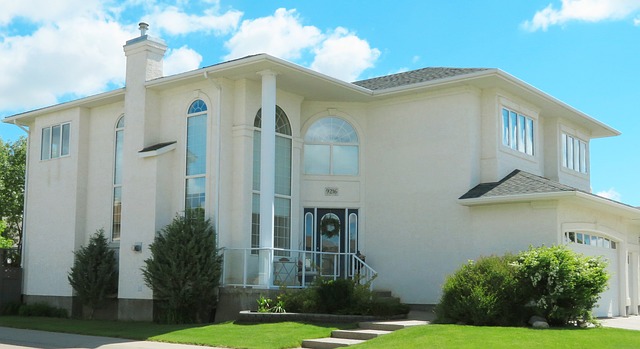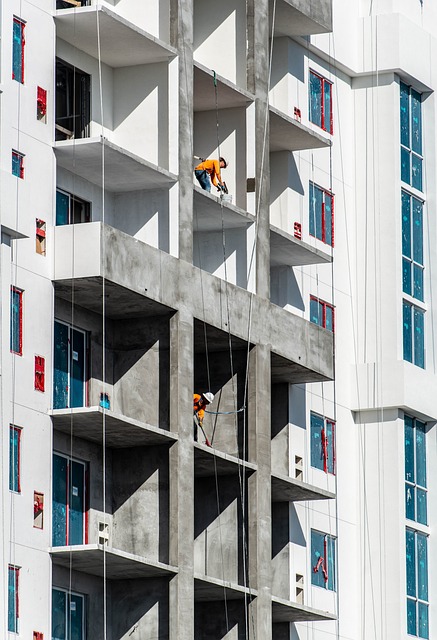2023 has seen Executive Condominium (EC) prices in Singapore influenced by a range of economic factors and government policies. ECs serve as an affordable housing option for first-time homeowners and are affected by location, local supply and demand, estate maturity, and proximity to essential amenities like shopping centers, schools, and MRT stations. Government initiatives like the Extension of Lease (EOL) scheme have a significant impact on pricing. Historical data shows EC prices track broader market trends, with sensitivity to macroeconomic conditions and interest rates. Looking ahead, demographic shifts and continued government efforts to stabilize the property market are expected to sustain the appeal and growth of ECs. The unique advantages of ECs, such as potential upgrades to public housing status, will likely continue influencing their resilient pricing trajectory. Buyers and investors should stay informed on these factors and economic conditions to make strategic decisions in the dynamic EC market. Understanding the Executive Condominium Price dynamics is essential for those considering purchasing an EC, as it bridges the gap between public and private housing and offers a mix of affordability and potential value appreciation.
Navigating the residential real estate landscape in Singapore presents homebuyers with a variety of options, among them Executive Condominiums (ECs). This article delves into an essential comparison between EC prices and those of Housing & Development Board (HDB) flats. We’ll explore market dynamics, historical price trends, and future projections for ECs. Additionally, we’ll analyze how factors like location, tenure, and developer reputation shape the pricing landscape of ECs in contrast to HDB prices across diverse regions within the island state. Understanding these elements is crucial for prospective homeowners looking to make informed decisions in this dynamic market.
- Understanding the Market Dynamics: A Comprehensive Look at EC Prices in Singapore
- EC Price Trends: Historical Data and Future Projections
- Comparing EC Pricing with HDB Prices Across Different Regions in Singapore
- Factors Influencing Executive Condominium Prices: Location, Tenure, and Developer Reputation
Understanding the Market Dynamics: A Comprehensive Look at EC Prices in Singapore

In the vibrant real estate landscape of Singapore, understanding the market dynamics of Executive Condominium (EC) prices is crucial for both current and prospective homeowners. The EC market, a hybrid between public and private housing, offers a more affordable option compared to private condominiums while providing facilities and features on par with those found in mature estates. Prices of ECs are influenced by various factors, including location, supply, demand, and the maturity of the estate. Proximity to amenities such as shopping centres, schools, and MRT stations can drive up property values, reflecting the convenience and lifestyle that these developments offer. Additionally, government policies and initiatives often play a significant role in shaping EC pricing, with measures like the Extension of Lease (EOL) scheme affecting both short-term and long-term price trends. Investors and buyers must closely monitor these factors to gauge the right timing for entry into this market segment. As the EC landscape evolves, with new projects launching and existing ones reaching full capacity, discerning investors can leverage this information to make informed decisions, aligning their investment strategies with the dynamic nature of the EC price trends in Singapore.
EC Price Trends: Historical Data and Future Projections

Executive Condominium (EC) prices have exhibited a dynamic trend over recent years, with historical data revealing a pattern that reflects both market responsiveness and policy influences. Analysis of past price movements indicates that EC prices have generally followed the broader trends in the residential property market, responding to economic conditions, interest rates, and governmental housing policies. For instance, during periods of economic expansion and low-interest rates, EC prices have often seen a steady increase, reflecting the affordability and appeal of these properties for both singles and families.
Looking ahead, future projections for EC prices consider a range of factors including population growth, changes in demographic preferences, and ongoing governmental policies aimed at ensuring a stable housing market. Experts suggest that the continued demand for quality living spaces, coupled with the unique combination of benefits offered by ECs—such as the potential for upgrading to a public housing flat after a minimum of five years—will likely sustain their desirability and price growth. Consequently, the price trajectory for ECs is anticipated to remain robust, albeit with fluctuations influenced by the broader economic landscape and policy adjustments. Prospective buyers and investors are advised to monitor these trends closely to make informed decisions in the competitive EC market.
Comparing EC Pricing with HDB Prices Across Different Regions in Singapore

In Singapore, the housing market presents a diverse range of options for prospective homeowners, with Executive Condominium (EC) prices being a significant point of comparison to those of Housing and Development Board (HDB) flats. The pricing of ECs, which offer a hybrid model between public and private housing, tends to be higher than that of their HDB counterparts due to their larger size, enhanced facilities, and lease upgrade options upon fulfilling specific criteria. In regions like Sengkang, Punggol, and Tampines, where newer ECs are situated, prices often reflect the latest market trends, with factors such as location, amenities, and the maturity of the estate influencing the cost. Notably, the price disparity can be substantial, with ECs in mature estates like Bishan or Ang Mo Kio commanding premiums that reflect both their centralized locations and the established living environments they offer. As one navigates through various districts, it becomes evident that the Executive Condominium Price varies significantly, necessitating a discerning approach when comparing these prices with those of HDB flats in the same areas. This comparison is crucial for homeowners to make informed decisions based on their financial capacities and desired lifestyle.
The pricing dynamics between ECs and HDB flats also reveal insights into the socio-economic landscape of Singapore’s diverse neighborhoods. For instance, ECs in mature estates may be priced higher than HDB flats due to their proximity to commercial hubs, reputable schools, and extensive public transportation networks. Conversely, ECs in non-mature estates might be more competitively priced compared to HDB resale prices, offering a more affordable alternative for families looking to upgrade from their HDB flats. Prospective buyers considering an EC as their first or second property should examine the average prices across different regions to understand the value proposition and how it aligns with their long-term housing aspirations. It’s clear that while both HDB flats and ECs serve the purpose of providing quality living spaces, the Executive Condominium Price points across Singapore’s regions are a testament to the varying demands and desirability of these properties within the broader real estate market.
Factors Influencing Executive Condominium Prices: Location, Tenure, and Developer Reputation

Executive Condominium (EC) prices are significantly influenced by a triad of critical factors: location, tenure, and developer reputation. Location is paramount in real estate, as it determines accessibility to amenities, public transport, and the desirability of the neighborhood. ECs situated in mature estates often command higher prices due to their proximity to established facilities and the convenience they offer. Tenure refers to the length of time the EC can be owned or sold as a private condo before it reverts to being part of the public housing estate at the end of its minimum occupation period. Newer ECs with a longer balance lease term and remaining tenure tend to fetch higher prices, as they offer more flexibility and potential for resale value in the open market. Lastly, developer reputation plays a pivotal role in influencing EC prices. Developers with a track record of crafting quality homes and delivering projects on time and within budget are often able to price their ECs at a premium, reflecting the confidence buyers have in their brand and the expected standards of the development. When evaluating Executive Condominium Price versus HDB Price, potential homeowners must consider these factors carefully to make an informed decision that aligns with their long-term housing aspirations.
Executive Condominium (EC) prices have shown a dynamic trend within Singapore’s real estate landscape. Historical data indicates a steady increase in EC prices, which is projected to continue, reflecting market confidence and the ongoing appeal of these properties. When juxtaposed with HDB prices, ECs present an attractive alternative for aspiring homeowners seeking more space or amenities without venturing into private property territory. Factors such as location, tenure, and developer reputation play pivotal roles in influencing EC prices, which is evident across different regions in the country. Prospective buyers are encouraged to consider these insights when making an informed decision about their housing choices. This article has elucidated the multifaceted nature of EC pricing, offering a clearer understanding for stakeholders in the property market.



